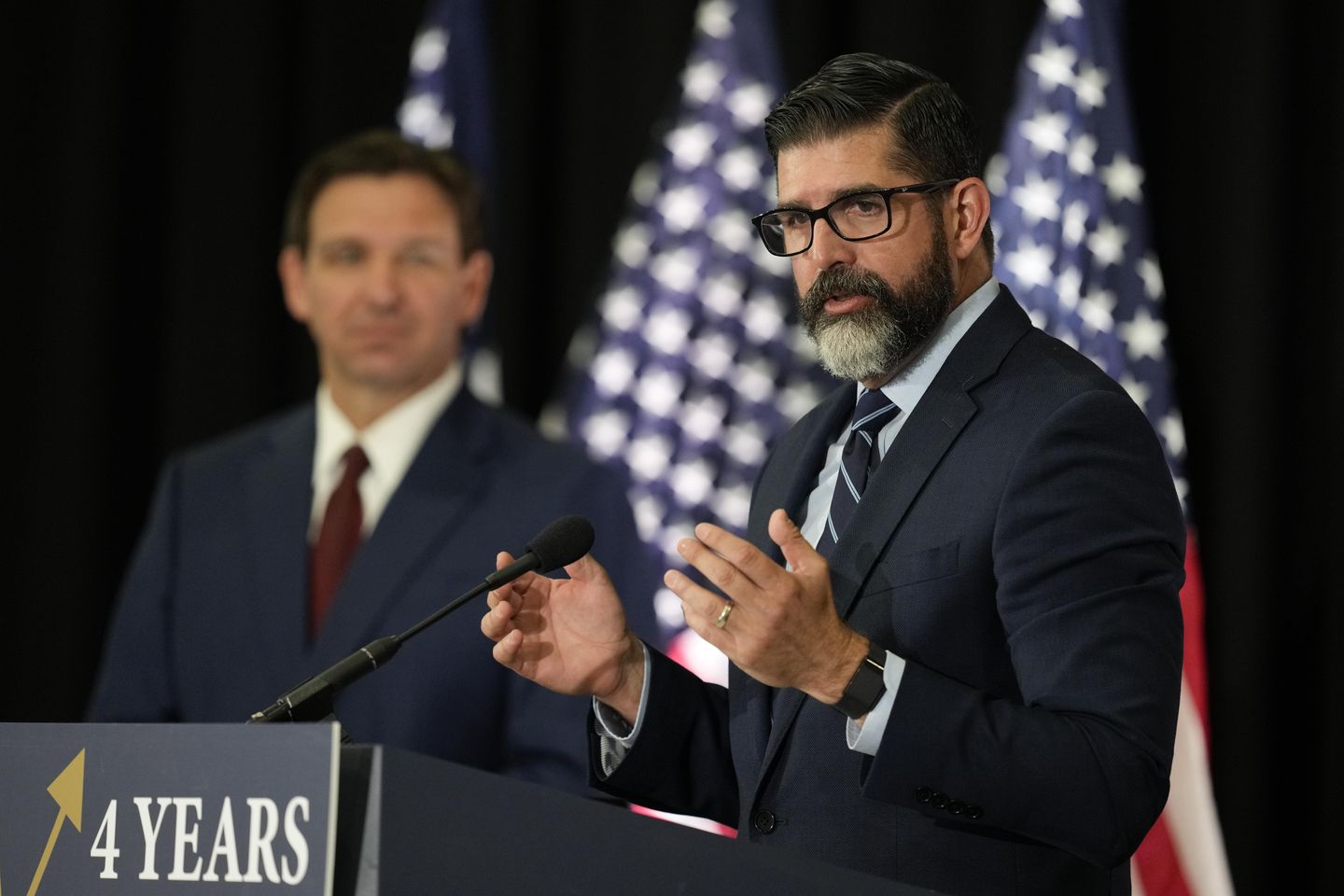
The Florida Board of Governors this month unanimously confirmed three allies of Republican Gov. Ron DeSantis as state university presidents, expanding his quest to eradicate “wokeness” in public education.
Supporters expect the appointments of former Lt. Gov. Jeanette Nuñez at Florida International University, lobbyist Marva Johnson at Florida A&M University and former state Education Commissioner Manny Diaz at the University of West Florida to reinforce DeSantis policies banning racial preferences and gender identity instruction.
Once a blue and then a swing state in national politics, Florida has trended deep red over the past decade. Mr. DeSantis has replaced many public college trustees and Board of Governors members with GOP allies since cruising to a second term as governor in November 2022.
“Governor DeSantis, a conservative, was reelected by 20 points for his record and positions,” said DeSantis spokesman Bryan Griffin. “Of course, we are going to advocate for like-minded individuals to be in top positions throughout the state — especially in higher education where we have committed to recapturing academia from the radical left.”
Critics accuse the governor of interfering in presidential searches. They noted that none of the three latest picks has previous academic experience.
“Florida has had an excellent system of higher education that is being destroyed by the current governor,” said Adriana Novoa, a Latin American history professor at the University of South Florida and plaintiff in two lawsuits challenging the governor’s education policies. “In practice, this means that you cannot use race, sexuality and gender as categories of analysis in any discipline that is taught at Florida’s universities.”
Higher education, long dominated by Democrats, has shifted rightward in Florida during the governor’s second term.
DeSantis allies now lead five of the state’s 12 public universities and several of its 28 community and state colleges. They include former Republican state lawmakers Richard Corcoran and Fred Hawkins taking the reins of New College of Florida and South Florida State College in 2023, respectively.
“The governor recognizes that the default has to move away from academics being presidents,” Mr. Corcoran, an attorney and former business owner, said in a phone call. “They’re not wired to lead, they have never had to fire anyone, they’ve never been in the free market, they’ve likely never run a business.”
Longtime state House Leader Adam Hasner became president of Florida Atlantic University earlier this year.
“Governor DeSantis wants a system that teaches people to be successful members of society rather than indoctrinates them in liberal politics,” said Mike Hill, a former Republican state lawmaker and member of Project 21, a network of Black conservatives.
Peter Wood, president of the conservative National Association of Scholars, noted the difficulty of finding veteran academics to advance that goal.
“Those with such a background often support the left-wing ideologies that permeate most of higher education, and they are beholden to the organized interests behind those ideologies,” said Mr. Wood, a former associate provost at Boston University.
Officially, trustees at each institution select a president without input from Mr. DeSantis. Unofficially, conservatives say trustees are wise to hire Republicans with political connections in the GOP-trending Sunshine State, as Democrats have done in deep-blue states for years.
Some appointments have still provoked academic freedom protests from trustees, students and faculty.
Former Sen. Ben Sasse, a Nebraska Republican and ex-academic, led the flagship University of Florida from January 2023 to July 2024. He resigned shortly before public revelations that he spent large sums of money on jobs for GOP allies and former staffers.
Early this month, the Florida Board of Governors rejected UF trustees’ unanimous nomination of Santa Ono to replace Mr. Sasse. Critics blamed their decision on a backlash against Mr. Ono’s past support for diversity, equity and inclusion initiatives.
“These folks have been appointed to execute a narrow political and ideological agenda under the guise of freeing universities supposedly in the grip of such an agenda,” said Meera Sitharam, a tenured computer sciences professor and president of the UF chapter of United Faculty of Florida, a statewide professors’ union.
In an email to The Washington Times, a State University System of Florida spokeswoman rejected allegations of partisan interference by its Board of Governors. She pointed to bipartisan examples of political figures chosen to lead state campuses between 1994 and 2014.
“The boards of trustees select the candidate they feel is best qualified to lead their institutions,” said Cassandra Edwards, a system spokeswoman.
Nationwide, former politicians comprise a small fraction of university presidents, but Democrats have far outnumbered Republicans historically. They include Janet Napolitano, a former Arizona governor and appointee in the last three Democratic presidential administrations who helmed the University of California system from 2013 to 2020.
Izzy Gardon, a spokesman for California Gov. Gavin Newsom, said such instances are rare.
“The leaders of California’s public college systems are respected academics,” Mr. Gardon said. “That speaks for itself.”








